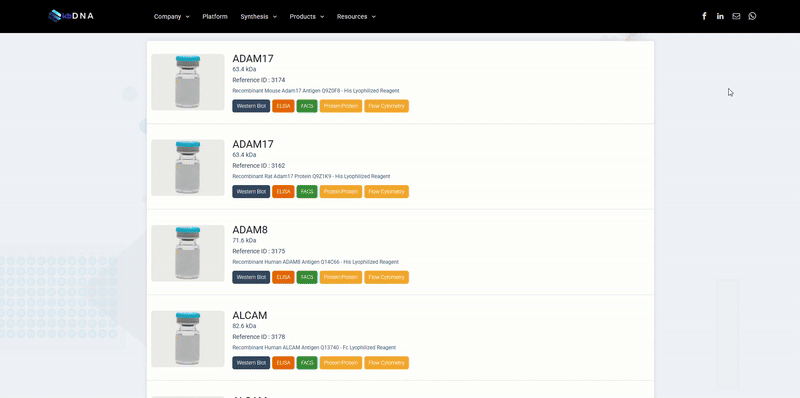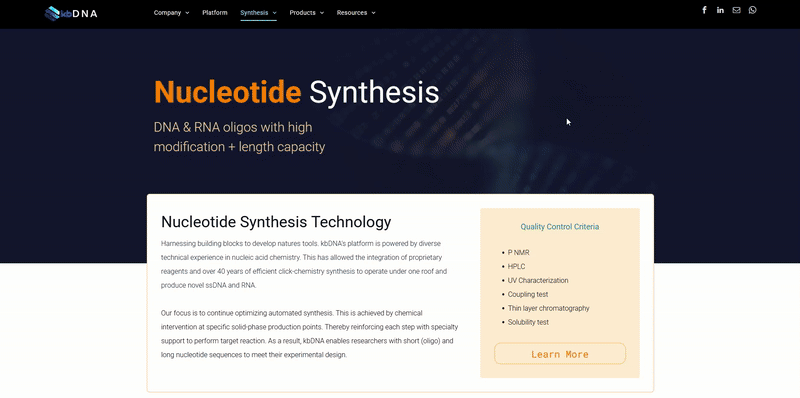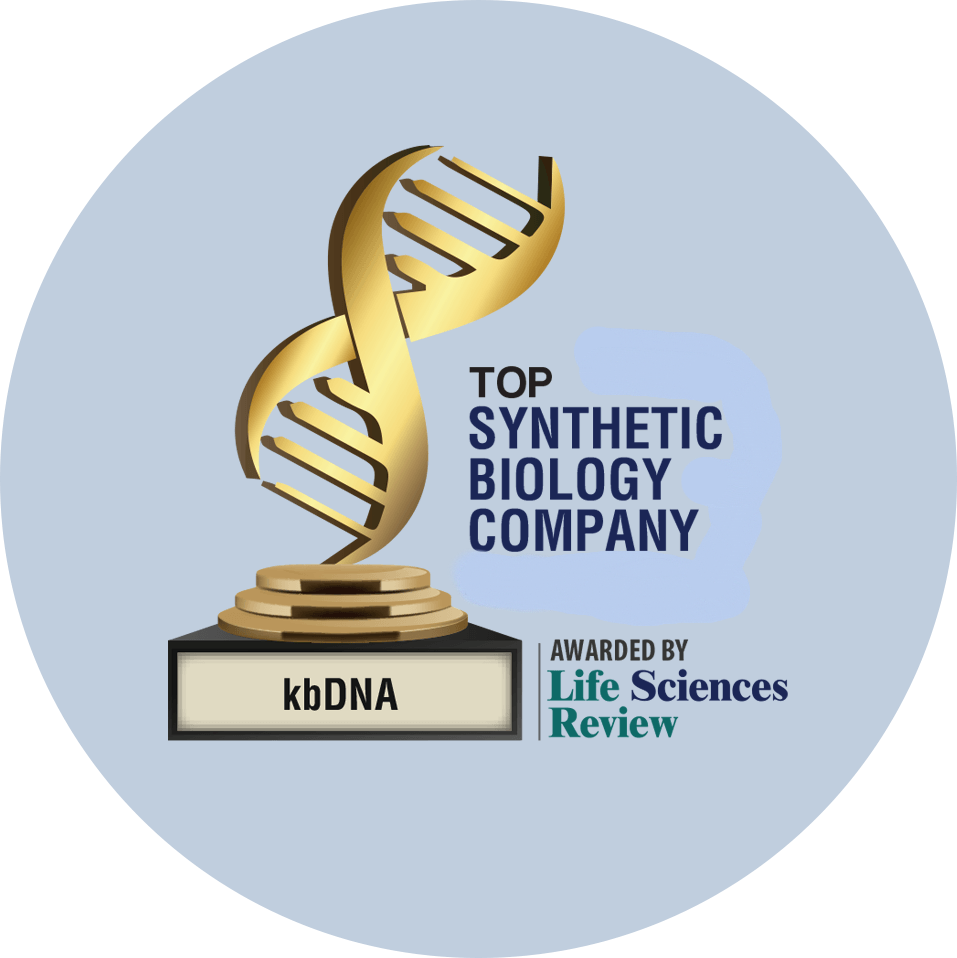2B4
Recombinant ID:
3704
Request Datasheet
Gene of Interest
Gene Synonyms:
Protein Names:
Accession Data
Organism:
Homo sapiens (Human)
Mass (kDa):
41616
Length (aa):
370
Sequence:
MLGQVVTLILLLLLKVYQGKGCQGSADHVVSISGVPLQLQPNSIQTKVDSIAWKKLLPSQNGFHHILKWENGSLPSNTSNDRFSFIVKNLSLLIKAAQQQDSGLYCLEVTSISGKVQTATFQVFVFESLLPDKVEKPRLQGQGKILDRGRCQVALSCLVSRDGNVSYAWYRGSKLIQTAGNLTYLDEEVDINGTHTYTCNVSNPVSWESHTLNLTQDCQNAHQEFRFWPFLVIIVILSALFLGTLACFCVWRRKRKEKQSETSPKEFLTIYEDVKDLKTRRNHEQEQTFPGGGSTIYSMIQSQSSAPTSQEPAYTLYSLIQPSRKSGSRKRNHSPSFNSTIYEVIGKSQPKAQNPARLSRKELENFDVYS
Proteomics (Proteome ID):
Natural killer cell receptor 2B4 (NK cell activation-inducing ligand) (NAIL) (NK cell type I receptor protein 2B4) (NKR2B4) (h2B4) (SLAM family member 4) (SLAMF4) (Signaling lymphocytic activation molecule 4) (CD antigen CD244)
Proteomics (Chromosome):
UP000005640
Mass Spectrometry:
N/A
Function [CC]:
Heterophilic receptor of the signaling lymphocytic activation molecule (SLAM) family; its ligand is CD48. SLAM receptors triggered by homo- or heterotypic cell-cell interactions are modulating the activation and differentiation of a wide variety of immune cells and thus are involved in the regulation and interconnection of both innate and adaptive immune response. Activities are controlled by presence or absence of small cytoplasmic adapter proteins, SH2D1A/SAP and/or SH2D1B/EAT-2. Acts as activating natural killer (NK) cell receptor (PubMed:10359122, PubMed:8376943, PubMed:11714776). Activating function implicates association with SH2D1A and FYN (PubMed:15713798). Downstreaming signaling involves predominantly VAV1, and, to a lesser degree, INPP5D/SHIP1 and CBL. Signal attenuation in the absence of SH2D1A is proposed to be dependent on INPP5D and to a lesser extent PTPN6/SHP-1 and PTPN11/SHP-2 (PubMed:10934222, PubMed:15713798). Stimulates NK cell cytotoxicity, production of IFN-gamma and granule exocytosis (PubMed:8376943, PubMed:11714776). Optimal expansion and activation of NK cells seems to be dependent on the engagement of CD244 with CD48 expressed on neighboring NK cells (By similarity). Acts as costimulator in NK activation by enhancing signals by other NK receptors such as NCR3 and NCR1 (PubMed:10741393). At early stages of NK cell differentiation may function as an inhibitory receptor possibly ensuring the self-tolerance of developing NK cells (PubMed:11917118). Involved in the regulation of CD8(+) T-cell proliferation; expression on activated T-cells and binding to CD488 provides costimulatory-like function for neighboring T-cells (By similarity). Inhibits inflammatory responses in dendritic cells (DCs) (By similarity). {ECO:0000250|UniProtKB:Q07763, ECO:0000269|PubMed:10359122, ECO:0000269|PubMed:10741393, ECO:0000269|PubMed:10934222, ECO:0000269|PubMed:11714776, ECO:0000269|PubMed:11917118, ECO:0000269|PubMed:8376943, ECO:0000305|PubMed:15713798}.
Metal Binding:
N/A
Site:
N/A
Tissue Specificity:
Expressed in spleen, PBL, followed by lung, liver, testis and small intestine. Expressed in all natural killer (NK) cells, monocytes and basophils, TCR-gamma/delta+ T-cells, monocytes, basophils, and on a subset of CD8(+) T-cells. {ECO:0000269|PubMed:10556801, ECO:0000269|PubMed:11714776, ECO:0000269|PubMed:8376943}.
Disease:
N/A
Mutagenesis:
MUTAGEN 68 68 K->A: Disrupts interaction with CD48; when associated with A-70. {ECO:0000269|PubMed:16002700}.; MUTAGEN 70 70 E->A: Disrupts interaction with CD48; when associated with A-68. {ECO:0000269|PubMed:16002700}.
Reagent Data
Name:
Natural killer cell receptor 2B4 (NK cell activation-inducing ligand) (NAIL) (NK cell type I receptor protein 2B4) (NKR2B4) (h2B4) (SLAM family member 4) (SLAMF4) (Signaling lymphocytic activation molecule 4) (CD antigen CD244)
Class:
Subcategory:
Recombinant
Molecular Weight:
Source:
Species:
Human
Amino Acid Sequence:
Tag:
Format:
Lyophilized
Formulation:
Sterile-filtered colorless solution
Formulation Concentration:
1mg/ml
Buffer Volume:
Standard
Buffer Solution:
PBS
pH:
7.4-7.5
Stabilizers
NaCl:
Null
Metal Chelating Agents
EDTA:
Null
Purity:
> 98%
Determined:
SDS-PAGE
Stained:
Inquire
Validated:
RP-HPLC
Sample Handling
Storage:
-20°C
Stability:
This bioreagent is stable at 4°C (short-term) and -70°C(long-term). After reconstitution, sample may be stored at 4°C for 2-7 days and below -18°C for future use.
Preparation:
Reconstitute in sterile distilled H2O to no less than 100ug/ml; dilute reconstituted stock further in other aqueous solutions if needed. Please review COA for lot-specific instructions. Final measurements should be determined by the end-user for optimal performance.












